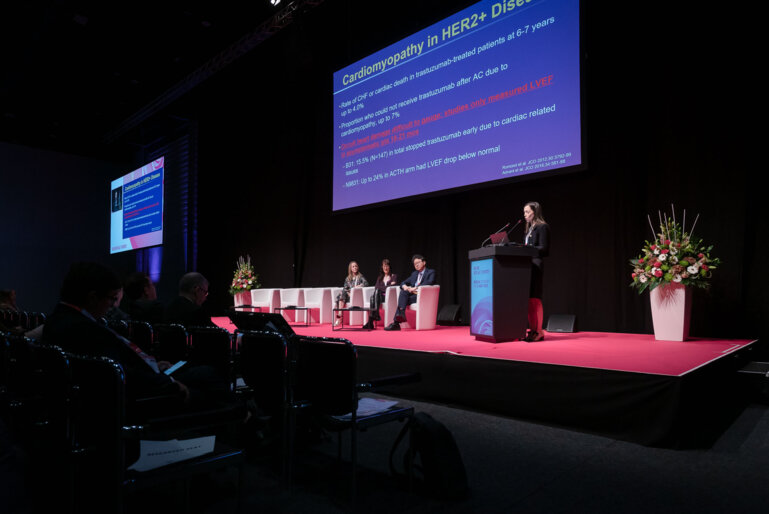
Sustained efficacy of CDK inhibitors reported for HR+/HER2– early breast cancer
Long-term data from monarchE supports dose reduction while NATALEE data reinforces consistency across subgroups

Long-term data from monarchE supports dose reduction while NATALEE data reinforces consistency across subgroups

In the DESTINY-PanTumour01 trial, promising response rates were seen with trastuzumab deruxtecan in heavily pre-treated patients with different cancer types

Encouraging preliminary results are reported with innovative antibody–drug conjugate designs, but underlying mechanisms of action still need to be described to improve efficacy and tolerability

Efficacy of PD-1 inhibitors in this setting reflects that reported in triple-negative breast cancer and is confirmed by long-term data presented at the ESMO Congress

The study involved patients with HR-positive/HER2-negative localised disease, but additional analyses are required to describe implications for clinical practice.

Some studies presented suggest preliminary activity of patritumab–deruxtecan in patients with HR-positive/HER2-negative disease and triple-negative breast cancer

Data presentations from DESTINY-Breast04, DESTINY-Breast02 and EMERALD trials confirm the value of trastuzumab deruxtecan and elacestrant in this setting, despite moderate drop-out rates for PROs

Technology promises to improve understanding of cancer risk and lesion biology, but clear regulation is urged to implement innovation in cancer screening programmes

In her keynote lecture, recipient of the ESMO Breast Cancer Award 2023, Prof. Sara A. Hurvitz talks of the need to challenge accepted paradigms to progress clinical research

Lessons learned from the use of second-generation antibody–drug conjugates (ADCs) in breast cancer can direct treatment in other tumour types
This site uses cookies. Some of these cookies are essential, while others help us improve your experience by providing insights into how the site is being used.
For more detailed information on the cookies we use, please check our Privacy Policy.
Necessary cookies enable core functionality. The website cannot function properly without these cookies, and you can only disable them by changing your browser preferences.